History, if we study it, is a teacher. It informs us and provides valuable perspective on the challenges of our times. Consider…
“To one foreign reporter he explained the secret of his success: ‘keep your heart a desert;’ because loyalties and friendships had to give way to the one important objective: power…there is no right or wrong in politics, only force.” – Historian Denis Mack Smith on Mussolini in 1923.
. . . . .
“President Hoover, blamed by the Bonus Army commander for the bloodshed here yesterday, called out the United States Army troops to end ‘rioting and defiance of civil authority.’” – Brooklyn Times Union, July 29, 1932, reporting on the president’s decision to use troops under the command of General Douglas MacArthur to rout thousands of out of work World War I veterans who were protesting in Washington to force payment of the bonus they were promised for service in the Great War.
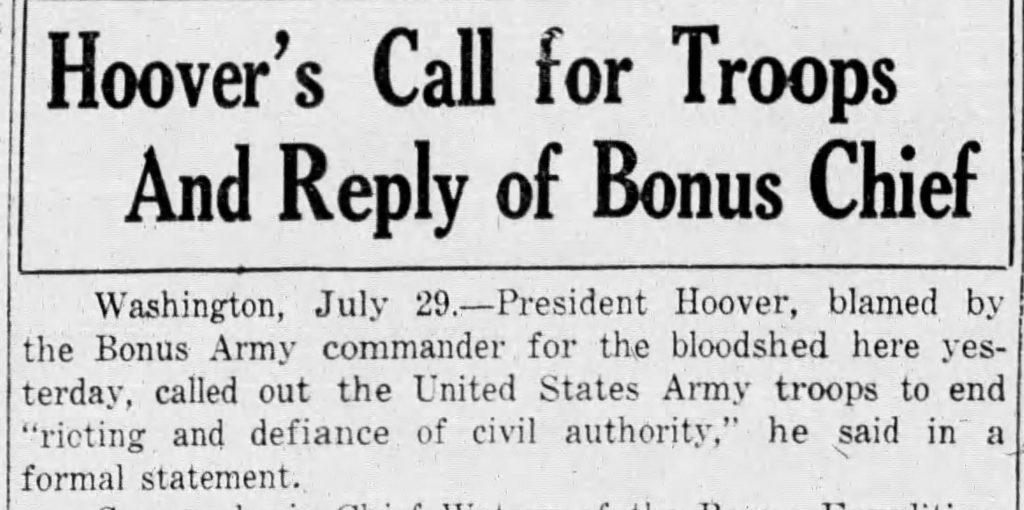
. . . . .
“What Hoover should have done was to meet with the leaders of the Bonus Army…Hoover should have sent out coffee and sandwiches and asked a delegation in. Instead he let…MacArthur do his thing…[he] has just prevented Hoover’s re-election.” – Franklin Roosevelt reacting to the rout of military veterans in 1932.
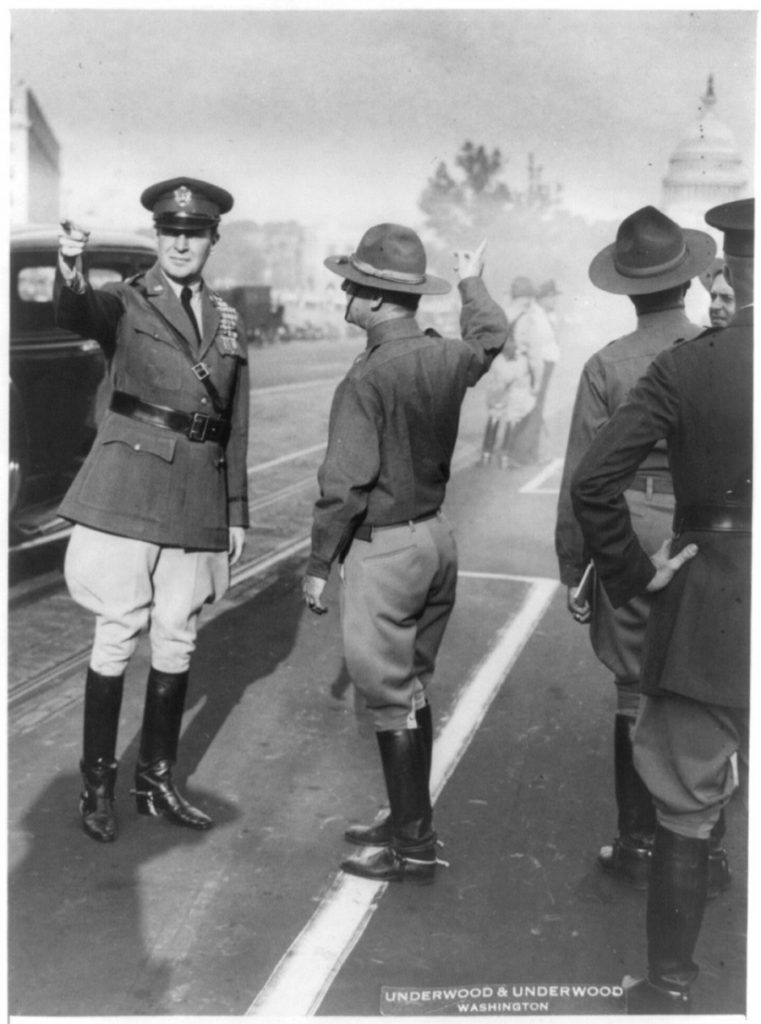
. . . . .
“At the venerable Heidelberg University, a philosophy student named Hannah Arendt was working on a doctoral dissertation…when news came of the [Reichstag] fire…years later she told an interviewer that the fire ‘was an immediate shock for me.’ From that moment, she said, she felt ‘responsible. That is, I was no longer of the opinion that one can simply be a bystander.” – Historian Benjamin Carter Hett on the burning of the German Reichstag in 1933, the event that allowed new chancellor Adolf Hitler to consolidate power under the Nazi Party.
. . . . .
“No people ever recognize their dictator in advance. When our dictator turns up, you can depend on it that he will be one of the boys . . . and he will stand for everything traditionally American.” – Columnist Dorothy Thompson in the 1930s warning that fascism could come to America.
. . . . .
“[Marshall] Petain almost immediately issued a number of constitutional acts which in effect gave him absolute power, and adjourned Parliament until further notice. The Vichy regime was born.” – Historian Julian Jackson on how Vichy collaborators in 1940 discarded French democracy to make common cause with the country’s Nazi occupiers.
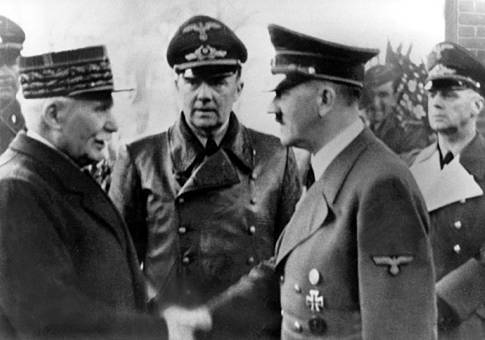
. . . . .
“Every new totalitarian step is clothed in some righteous-sounding slogan. This, indeed, is not the Japan that we have known and loved.” – Joseph Grew, U.S. ambassador to Japan, in a letter to President Franklin Roosevelt in 1940.
. . . . .
“There is little hope for us until we become tough-minded enough to break loose from the shackles of prejudice, half-truths, and downright ignorance.” Nobel Prize acceptance speech of Dr. Martin Luther King, Jr. in 1964.
. . . . .
“My favorite poet was Aeschylus. He wrote: ‘In our sleep, pain which cannot forget falls drop by drop upon the heart until, in our own despair, against our will, comes wisdom through the awful grace of God.’ What we need in the United States is not division; what we need in the United States is not hatred; what we need in the United States is not violence or lawlessness; but love and wisdom, and compassion toward one another, and a feeling of justice toward those who still suffer within our country, whether they be white or they be black.” – Robert F. Kennedy speaking extemporaneously in Indianapolis on the night Dr. King was assassinated in 1968.
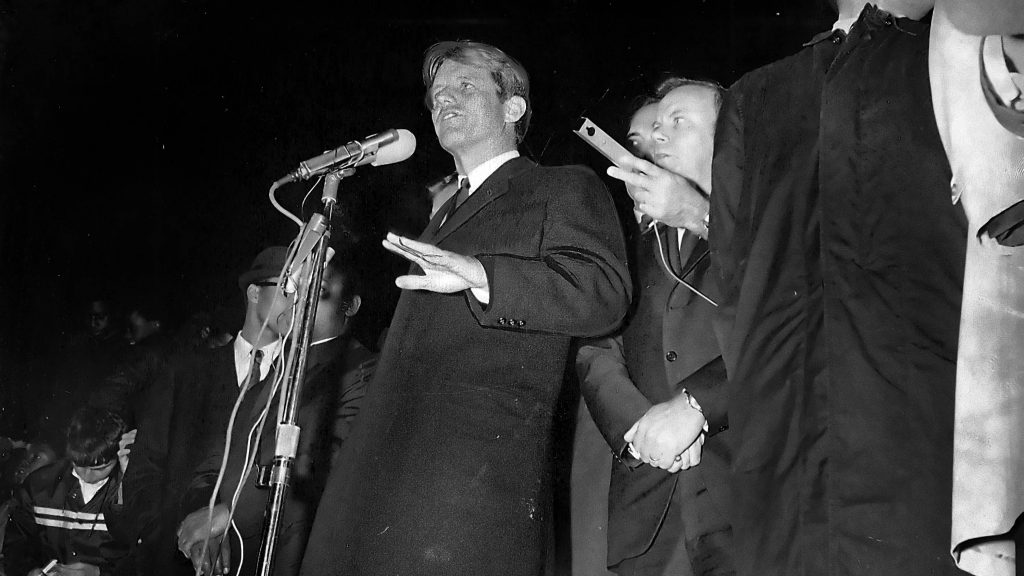
. . . . .
“This American carnage stops right here and stops right now.” – Donald J. Trump Inaugural Address, January 20, 2017.
. . . . .
“In the history of the Republic, no President has ever ordered the complete defiance of an impeachment inquiry or sought to obstruct and impede so comprehensively the ability of the House of Representatives to investigate ‘high Crimes and Misdemeanors.’ This abuse of office served to cover up the President’s own repeated misconduct and to seize and control the power of impeachment—and thus to nullify a vital constitutional safeguard vested solely in the House of Representatives.” – Article II, Obstruction of Justice, in the impeachment of President Trump.
. . . . .
“In interviews and posts on social media in recent days, current and former U.S. intelligence officials have expressed dismay at the similarity between events at home and the signs of decline or democratic regression they were trained to detect in other nations. ‘I’ve seen this kind of violence,’ said Gail Helt, a former CIA analyst responsible for tracking developments in China and Southeast Asia. ‘This is what autocrats do. This is what happens in countries before a collapse. It really does unnerve me.’” – Washington Post reporting on the alarm of U.S. intelligent analysts.
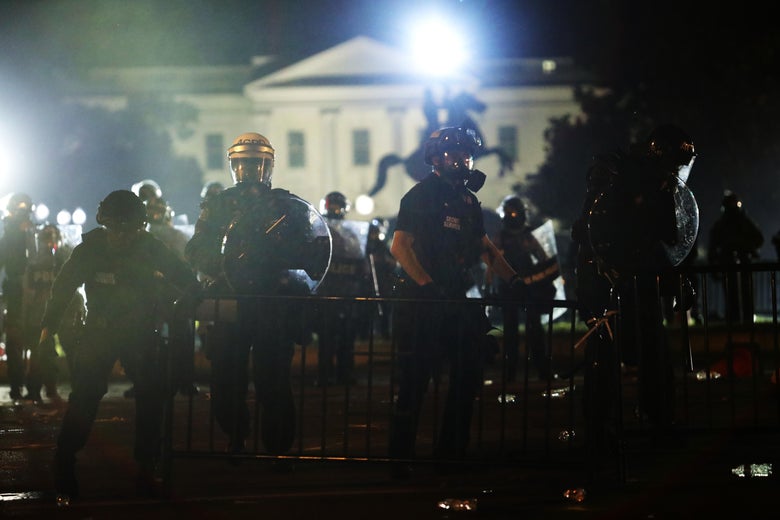
. . . . .
“President Donald Trump faced withering criticism in the hours after spurring a violent incursion against apparently peaceful protesters for the purposes of staging a political photo opportunity — provoking rebukes Tuesday from local and state executives, congressional lawmakers, faith leaders and even foreign governments over the extraordinary show of force amid converging national crises.” – Politico reporting on the use of military forces against civilian demonstrators outside the White House.
. . . . .
“In life’s unforgiving arithmetic, we are the sum of our choices. Congressional Republicans have made theirs for more than 1,200 days. We cannot know all the measures necessary to restore the nation’s domestic health and international standing, but we know the first step: Senate Republicans must be routed, as condign punishment for their Vichyite collaboration, leaving the Republican remnant to wonder: Was it sensible to sacrifice dignity, such as it ever was, and to shed principles, if convictions so easily jettisoned could be dignified as principles, for . . . what? Praying people should pray, and all others should hope: May I never crave anything as much as these people crave membership in the world’s most risible deliberative body.” – Conservative columnist George Will, June 1, 2020.
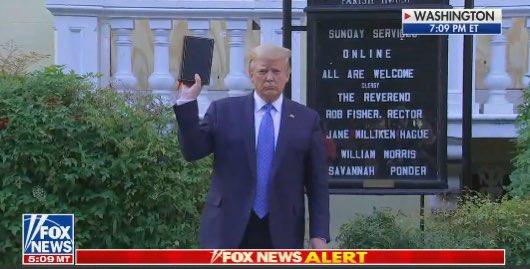
. . . . .
“In due course, historians will write the story of our era and draw lessons from it, just as we write the history of the 1930s, or of the 1940s…They will see, more clearly than we can, the path that led the U.S. into a historic loss of international influence, into economic catastrophe, into political chaos of a kind we haven’t experienced since the years leading up to the Civil War. Then maybe [Lindsey] Graham—along with Pence, Pompeo, McConnell, and a whole host of lesser figures—will understand what he has enabled.” – Anne Appelbaum, a Russian-born historian of totalitarianism, writing in The Atlantic.
. . . . .
Consider.
History, if we study it, is a teacher. It informs us and provides valuable perspective on the challenges of our times.
—–0—–
Additional Reading:
Trump and the American Idiocracy
Richard North Patterson writes in The Bulwark: “Perceiving the infinity of all they can never know, true geniuses are disinclined to overstate their gifts. By contrast, Trump is a classic exemplar of the Dunning-Kruger Effect, named for two psychologists who demonstrated that the less knowledgeable and competent you are, the more you believe in your own superlative abilities. Such benighted folks, wrote Dunning and Kruger, not only ‘reach erroneous conclusions and make unfortunate choices, but their incompetence robs them of the . . . ability to realize it.’” Read the entire article.
A Report From Occupied Territory
James Baldwin’s remarkable article from The Nation in July 1966 reads like it might have been written this week.
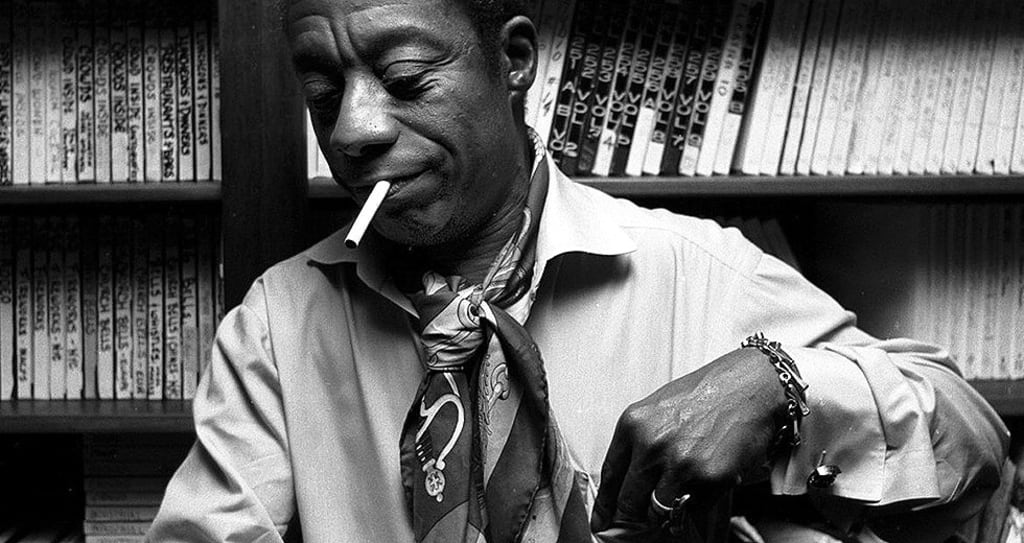
Baldwin wrote: “Now, what I have said about Harlem is true of Chicago, Detroit, Washington, Boston, Philadelphia, Los Angeles and San Francisco—is true of every Northern city with a large Negro population. And the police are simply the hired enemies of this population. They are present to keep the Negro in his place and to protect white business interests, and they have no other function. They are, moreover—even in a country which makes the very grave error of equating ignorance with simplicity—quite stunningly ignorant; and, since they know that they are hated, they are always afraid. One cannot possibly arrive at a more surefire formula for cruelty.” Read it here.
The Marshmallow Test Donald Trump Is Failing
Anne Kim writes in Washington Monthly that the rush to “return to normal” from the COVID-19 pandemic could backfire spectacularly, which is to say very badly. “The next few months will pose a crucial test of our national resolve and set the country’s trajectory for years to come. Americans need a leader who is honest about the difficulties that lie ahead, undaunted by the scale of the task, and willing to do take on the arduous job of navigating the nation’s recovery. In other words, they need the exact opposite of Trump.” Here is the link.
The Exact Moment Plot Against America Takes A Nose Dive
My friend Dr. Richard Drake, the Lucile Speer Research Professor in Politics and History at the University of Montana, authored an entertaining takedown of the HBO mini-series based on the Philip Roth novel. Richard writes: “As television, The Plot Against America benefits from some powerful acting performances and a dazzling exhibition of period automobiles, décor, and fashion, but it confirms the general rule of not going to the movies for history.” Read the piece in The American Conservative. (By the way, D. Drake is the author most recently of Charles Austin Beard: The Return of the Master Historian of American Imperialism.)
And…Wallace Stegner: Writer
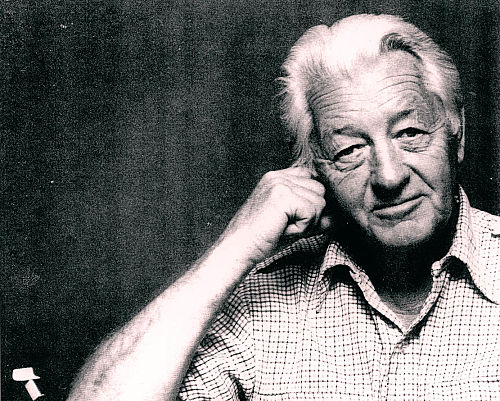
New York Times film critic A.O. Scott had a great piece recently about Stegner. Scott says, “Stegner was critical of the individualistic ethos of the West in all its manifestations: romantic, entrepreneurial and countercultural. Sometimes that makes him sound like a left-wing critic of capitalism, sometimes like the deepest kind of conservative. His commitments to ecology, family and community against the forces of modern economic development leave him jarringly and thrillingly resistant to the ideological pigeonholing that has become our dominant form of cultural analysis.” Read the whole thing.
Thanks for following. Take care.
